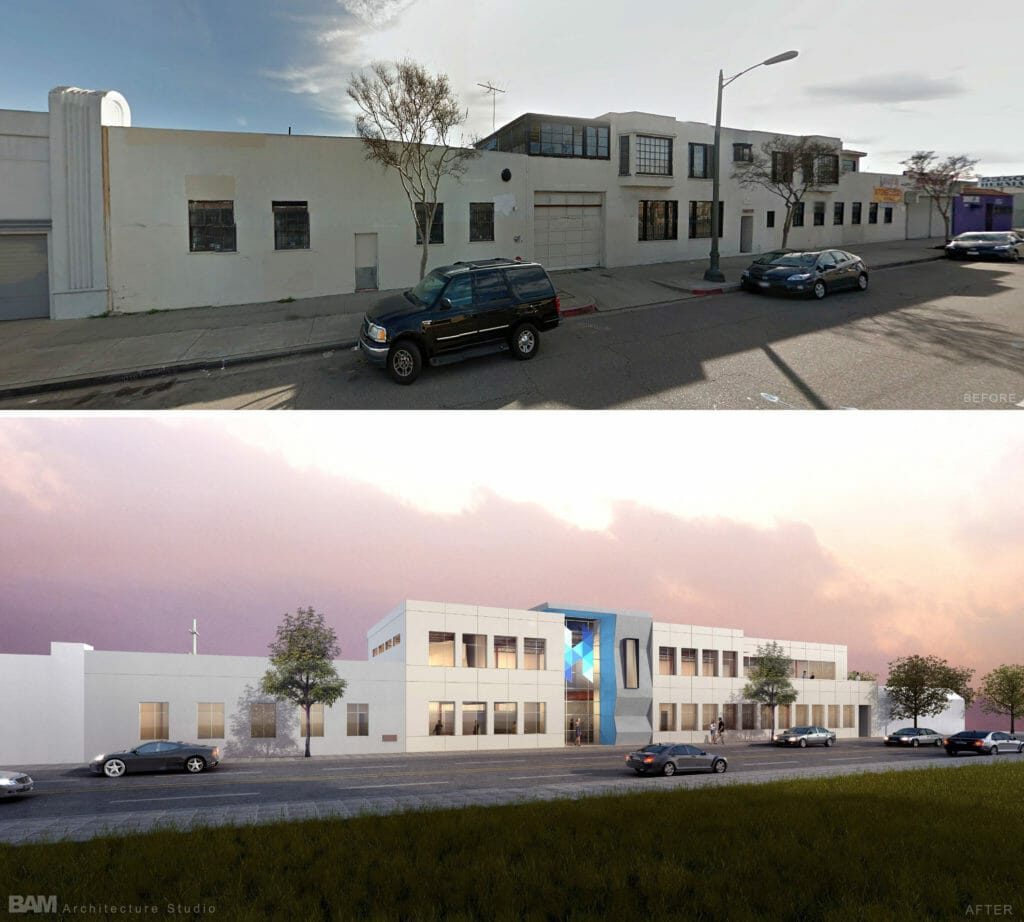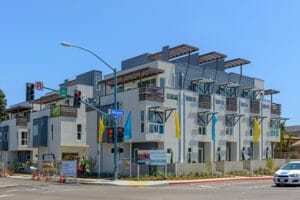Top Story
Name: Howard Kozloff
Company: Agora Partners
City: Los Angeles, California
Product Types: Entrepreneurial planning approach that is site specific, not product specific
What dd you do before you were a developer?
I had a great undergraduate college experience at Penn that really set me on the path to trying to understand cities and the built environment. I also spent a semester in Italy (where I met my wife). First stop after college was Jackson Hole, where I was a ski bum, but I also had a “real” job at an architecture firm, which included planning a small Habitat for Humanity village. I didn’t realize it at the time, but that specific project is what opened my eyes to larger scale planning and steered me away from architecture. I worked more than forty hours per week in Jackson, but because of a flexible boss, I got to ski five days per week.
Then I went back to school, getting a graduate degree in Urban Planning at Harvard, and a Real Estate Development degree from Columbia. Between those programs, I spent a year in Sydney on a fellowship studying the Olympics urban planning process. My first few jobs were architecture and urban design related, and then I was in a niche role using urban public space as catalyst for neighborhood turn-arounds. Essentially, that was about urban planning.
Then, I transitioned into development with a retail REIT that primarily does shopping malls. From there, I did more entrepreneurial work in Los Angeles doing a number of product types, finding the right use for the specific sites, which prompted my current site-first approach to development. My last job before going out on my own was running an international planning and architecture firm day-to-day. I started about a year before the Great Recession, but we fought our way through and made it out the other side. It was the best business education I ever received.
What motivated you to make the leap into development?

Agora Partners will make an 80-year-old former furniture factory, situated within the boundary of the Los Angeles Bioscience Corridor, a more fitting neighborhood asset.
Accountability. I learned that I was a much better partner than employee. That was because I wanted to be part of the decision making and held accountable for those decisions. I knew that I would ultimately be responsible for outcomes. I was ready for the ups and downs that come with it.
In dealing with the day-to-day of your enterprise, what do you find to be the most difficult to accomplish?
Time management. I always thought I was very efficient and organized, but when you’re running your own business, executing on active deals, looking for new deals and you want to see your family, there’s only so many hours in the day. Things are unpredictable. I never know what’s going to come across my desk at any given moment, forcing me to shift gears. The unpredictability is both exciting and frustrating. I get a lot out of each day, but at the end of every single day, there are always things I didn’t get to.
Where do you turn to get a fresh perspective or experienced insight on a prospective or existing deal?
First and foremost, it’s my wife. She’s an artist, not a real estate expert. Ultimately, the end users of whatever I’m developing are usually not real estate people, either, so she can give me insightful and unbiased feedback from a different perspective. She often sees things that I miss.
I generally rely heavily on my relationships. And I try to give as much as I take. If you stay honest with everybody, you gain a whole lot of credibility and you know you will get honesty back from them. It takes a lot of time to build up someone’s trust, but you can lose it instantly.

Agora Partners and their partner, ASG Real Estate, will complete HATCH–a re-imagined furniture factory turned 20,000 SF of bioscience lab and office space–as a response to the lack of options that bioscience startups face in the Los Angeles region.
It’s about a lot of different people. There are my partners, personal friends – not in the business and those who are, and there’s a variety of experts. And if I’m going to put the plug in for ULI, my real estate network is what it is in a very large part because of ULI. I’ve found that through that network, I can reach out to people whom I’ve never met before and get feedback, advice, and information. But, again, it means I also make myself available to them.
What gets you out of bed every day to do what you do?
I love it! I love cities and neighborhoods and trying to figure out what’s “right.” Of course, that also means understanding that what is “right” will be different for different people. It’s a problem-solving and sociological process. It’s trying to navigate and mitigate all kinds of decisions about what a place “should” be from the differing perspectives. At the end of the day, I want to create something that more people think is best for the place. It’s usually a messy process, but I enjoy it.
What does being a successful real estate developer mean to you?
I think the obvious answer is about creating profitable projects, because if it’s not profitable then you’re not going to be in the business very long. A successful developer is one with longevity. To get there, though, you need a string of positive impacts on people, neighborhoods, cities, partners, project teams, investors, et cetera. If you impact, measurably, more people positively then negatively, then I think that’s a success.
In looking at the next one to two years, what do you see as the biggest challenges to your business and projects?
It’s always the unknowns. For a while we’ve had an up-cycle, but at some point, that’s obviously going to change. I’m not only trying to figure out how to survive through a downturn, but how can I continue to make deals during a downturn and stay productive.
What skills or traits do you think are most important to make the leap into real estate development?
One is optimism. If you’re not optimistic, then you’re in the wrong business. You can’t start any real estate development deal unless you think some part of it is going to get better.
You have to be disciplined, and you have to know when you’re looking at a project that

The Guild, in San Diego’s Golden Hill neighborhood, includes 15 for-sale townhomes that address the “missing middle” pricing cohort. Individual units include garages, home offices, and open floor plans to complement extensive outdoor areas.
is right for you and when you’re not. Part of that is being completely honest with everyone you’re dealing with, but you also have to be honest with yourself.
You also need to have a big-picture view, because if you’re going to take a scorched-earth approach, people remember that. If you burn somebody, then [he or she] is not going to be an ally for you down the road. In my experience, in this business, you need to collect allies. You also need to be tough. That’s part of the honesty. But you don’t have to be tough at the expense of creating and maintaining allies.
What skill or trait did you lack at one point, and how did you overcome it?
I wanted to be a developer and I knew that, but I was terribly risk-averse. Being a developer and being risk-averse—those two things don’t usually work out. I had to get comfortable with risk. The way I did that was to jump into a deal with a close friend of mine. It was a small deal and a dollar amount that if I’d lost every penny of it, I would be O.K. The risk was there. I certainly didn’t want to lose money, but the fear of losing it was not there. By the way, I didn’t lose on that one.
What was a memorable mistake?
Back to the trust thing, there were probably people I shouldn’t have trusted. And there were missed deals because I was too conservative. I tend not to dwell on mistakes, though, since there is plenty to do otherwise.
Sometimes I get too analytical at times. Putting a whole lot of time and effort into a pro forma can sometimes make you miss deals. There are tons of unknowns, and you have to get very comfortable with that. Sometimes you just have to feel it. I wish I’d initiated some deals earlier on. When something isn’t going according to plan, then that’s just a time to step back and say, “O.K., now what?”
How has your involvement with ULI played a role in your career, transition, et cetera.?
I’ve gotten a couple of jobs because of my networks through ULI. I find that the people part of ULI has been the foundation, the walls, and the roof for everything that I’ve done professionally.
I’ve written for Urban Land. I’ve presented at conferences. The Young Leaders Group. Product Councils. There’s been a lot. It’s hard to point to any one thing that’s made the most impact because they all contribute to my work. ULI has probably been the greatest ongoing influence in my career, through the networks, the programs, the mentorship, et cetera.
What’s your favorite city to visit and why?
I love Los Angeles. From a real estate perspective, almost anything goes. You can try a lot of different things. You can always find teams and support for whatever you want to try. I met my wife in Florence, Italy, so Florence will always be special to me. And then Sydney, where I lived for some time. It is one of the most fascinating and pleasant cities.
But, Los Angeles is massive, bold, and many things to many people. Yes, there are lots and lots of issues, but there is also endless opportunity. There are strong neighborhood identities, different scales and different physical and political environments within those neighborhoods. There are obscenely wealthy areas and painfully poverty-stricken areas. There are so many submarkets and block-by-block variations, which means there is always a new challenge to tackle and new stakeholders to work with. I’ve lived in a lot of different cities and I’ve never seen dynamism and creative energy like we have in Los Angeles.
About Entrepreneur Profiles
Entrepreneur Profiles are conversations with real estate development professionals who, in most cases, have recently made the leap into the industry whether as young individuals fresh out of school or as mid-career transitions.
With a focus on small-scale developers often doing incremental and transformative work, these are quick and easy to read profiles to raise awareness of these professionals. By telling their stories, the Urban Land Institute hopes to inspire the next generation of small scale entrepreneurs to transform their own communities. See the most recent Entrepreneur Profiles.